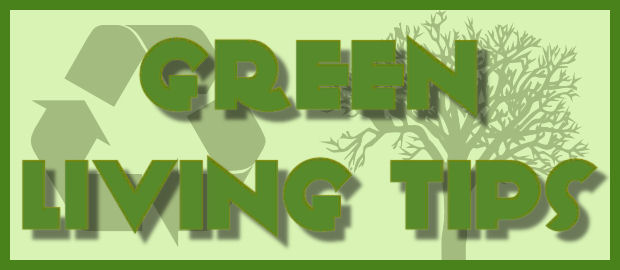
This is part five of a five part series on Earth Day, conservation, and being green. With these small steps, we can all save money while making big changes to our environment.
Back in the day, sleeping didn't cost a dime. There was no such thing as a refrigerator, computers weren't invented, and cellphones didn't need charging. Today, even while we sleep, appliances run, air conditioners hum, and clocks stay lit up all night, all the while racking up our bills. Now if we could only find a way to get paid to sleep so we can pay for all of this!
Our energy bills aren't going anywhere, but there some things you can do to decrease your energy use while you sleep. Before you go to bed tonight, give one of these a try. Then, every night you can try to tackle another one before bed:
- Plug your computer into a power strip with an on/off switch. Buy one with power surge protection to protect your computer during thunderstorms and electrical surges for even better use of the power strip. Computers that are left plugged in without a power strip can suck up tons of energy (and that story about how computers use less energy by staying on than turning them on and off is a myth).
- Turn down the fridge temperature. Fruit and vegetables will keep longer at slightly higher temperatures than freezing, and you'll save on your energy bill.
- Put more frozen stuff in your freezer. This will keep your freezer colder longer, and will prevent the frost mechanism from kicking on more often.
- Unplug toasters, panini presses, coffee makers, or anything else that isn't programmed or doesn't need to be used. All things that are plugged in can use energy while you sleep!
- Use a ceiling fan to move warm and cool air around your home. This will circulate the air that you pay for, and keep the thermostat from kicking on more often.
I hope you enjoyed this five part series on Earth Day and found it informative! Thanks for reading.
P.S.: The author of this page likes to blog on this site, and also sells a line of eco friendly products like reusable dryer sheets, paperless towels, soap nuts, organic facial care items, and organic household cleaners.





 The benefits are numerous, but do you really have time to squish in all of those fruits and vegetables into your diet? In a world of processed food, fast food, and hard to pronounce fillers that are taking the place of real food, the real question is, can you afford to not eat more fruits and vegetables? It doesn't take a vegetarian to know that eating plants is good for you, and you don't have to be a vegetarian or vegan to have some of those same benefits. Simply by incorporating more fruits and vegetables into your diet, you'll be doing a few of the following:
The benefits are numerous, but do you really have time to squish in all of those fruits and vegetables into your diet? In a world of processed food, fast food, and hard to pronounce fillers that are taking the place of real food, the real question is, can you afford to not eat more fruits and vegetables? It doesn't take a vegetarian to know that eating plants is good for you, and you don't have to be a vegetarian or vegan to have some of those same benefits. Simply by incorporating more fruits and vegetables into your diet, you'll be doing a few of the following: